Members of the research team
Lee Watkins – ILAM, RU
Rakesh Kumar - ILAM, RU
John Kitime - Research associate, Dar es Salaam, Tanzania
The project
Until recently, most research on music in the African diaspora was on trans-Atlantic America and South America. In fact, while mobility and the slave trade in the Indian Ocean long preceded the Middle Passage across the Atlantic Ocean, in music studies there is generally a neglect of the Indian Ocean and its association with the African continent. This theme is a major interest in this project.
In a similar fashion of exclusion, the collections at ILAM focus mainly on Anglophonic, sub-Sahara Africa and there is little to nothing on the other regions of Africa. At ILAM there is some content on the music of Tanzania and Zanzibar. A lot more research therefore needs to be undertaken on the Indian Ocean islands, the Arabic east coast of Africa and regions in South and Southeast Asia where there are African descendants. This project begins to address this challenge and through fieldwork, detailed documentation, digitisation and cataloguing, it helps return Africa into conversations and discourses on the Indian Ocean. This project feeds into the possibility of reimagining the continent as one that is not limited to geographical space; but as one that is at the centre of east, west, south and north.
The project started out as a concern with conducting research on African music and its vestiges on the Indian Ocean littoral and the islands of the southwestern Indian Ocean. Since around 2021 and during visits to Reunion, Zanzibar and Tanzania, however, I learnt that the more urgent intervention of digitisation is required. It came to my attention that there were collections in Tanzania, Madagascar, and Ethiopia, which were in dire need of conservation, with digitisation of course being a vital link in the process of conserving the music. Digitisation allows for preservation as well as opportunities for research and revivalism. At this point, digitisation should be the first priority. The lack of access to the correct skills set and the lack of equipment in most regions are reasons why this project is moving incrementally.
Sub-project 1: The Siddis in India
Following the lockdowns of 2020 and much of 2021, the research eventually took off towards the middle of 2021. The project commenced with research of two years on a particular community of African descendants in India; a community referred to as the Sidis. Over centuries, the Sidis migrated from the east coast of Africa, along islands in the Indian Ocean, towards the subcontinent of India. Descendants of the original group of migrants now reside in southern India and Gujarat and have retained African principles in their performance practices. They are Muslim but embrace surrounding faiths such as Hinduism and Suffism in their performances. The importance of African expressive culture is vital for this Indian African community who arrived in India 700 to 800 years ago.
The Goma-Dhamal is the most important performance tradition of the Siddi community. It includes singing, dancing, drumming, playing wind instruments, praying to Siddi saints, and visual stunts such as cracking coconuts with their heads. This research among the Siddis is being undertaken by a doctoral student by the name of Rakesh Kumar. The student has been recording their performance practices, has conducted extensive interviews with members of the community, and is adding metadata to the recordings, in partnership with his interlocutors.
There is almost no archival work to preserve the Goma-Dhamal musical instruments and performances. During fieldwork on the West coast of India, the Siddi community members emphasized the need for archival work of their Goma-Dhamal performances. This project provides a breakthrough in initiating the collection of Goma-Dhamal musical instruments and recording its performances. These recordings are archived at ILAM on the basis that the Siddi community will also have online access to them. At the moment, there is a preliminary website being developed and built around participatory archival practices. See https://www.siddidhamal.com/gomadhamal-photos One aim of this project is to archive research that is accessible in multiple languages, and particularly to those to whom the music belongs. The research will appear in a doctoral thesis.
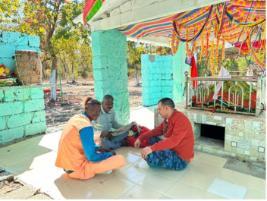
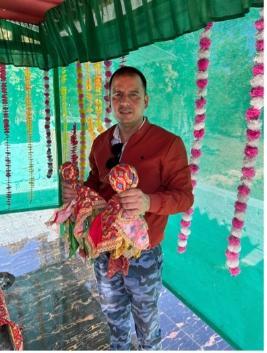
Rakesh Kumar with Siddi interlocutors on the left, and on the right, with rattles used in performance.
Sub-project 2: Dar es Salaam and Zanzibar
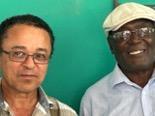
Lee Watkins and John Kitime
Another intervention was initiated in January 2023, when I visited Zanzibar and Dar es Salaam. Zanzibar is host to the Dhow Countries Music Academy (DCMA) where music is taught, performed and studied. I had meetings with two staff members there, Halda Alkanaan and Mahsin Basalama. Halda is the administrator and Mahsin the academic co-ordinator. They are very keen on having their collections digitised professionally. One reason being complaints about the quality of their recordings which are currently on the market. Mahsin is in the process of collecting cassettes of old Taarab music, a style for which Zanzibar is renowned. There is a sound engineer that we are inviting to ILAM for training in digitisation. In Dar es Salaam I met with Hashim Rubanza and John Kitime. Kitime owns a radio station and had at the time started collecting music recorded on old formats such as cassettes. We decided to see how much he would have collected by June 2023 and then plan a visit to ILAM where either he or the sound engineer at the DCMA will receive training in digitisation and cataloguing skills which they can use in Tanzania. Funding will be obtained from a variety of sources including a project funded by the Cluster. This project is the one called ‘Beyond Digital Return’. See the images below in which can be seen the items collected by Kitime in the past few months:
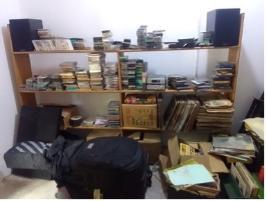
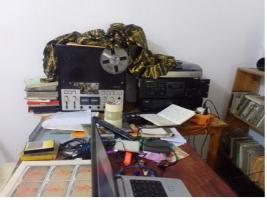
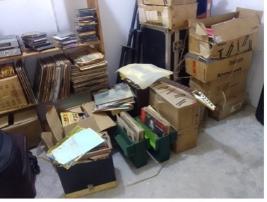
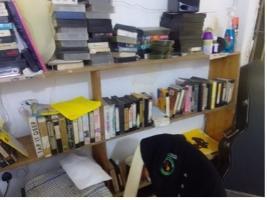
These images represent a percentage of the recordings that are available. One issue that makes it difficult to collect these recordings is that much of this music was banned by previous governments.
Last Modified: Thu, 07 Mar 2024 16:32:07 SAST








